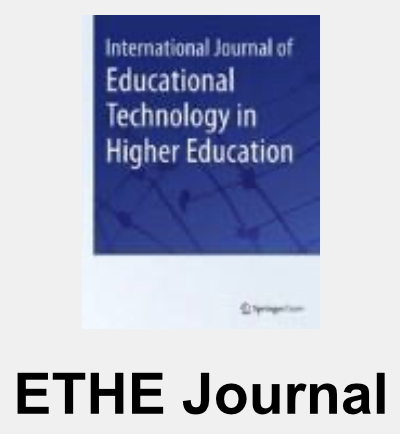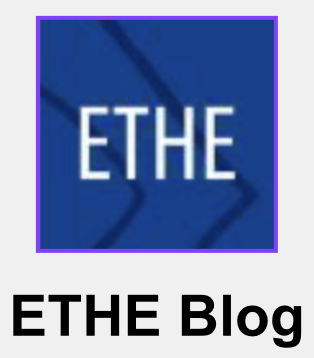¡La serie de webinars ‘Data Cultures in HE’ continúa! «Opening Data in Technology Enhanced Learning Research: The challenge, the practices»
Justgrimes, 2012 – CC-BY https://www.flickr.com/
(Texto en inglés)
By Juliana E. Raffaghelli
On March 12, we have a new Webinar Series’ appointment with Davinia H. Leo from the TIDE Research Group on Interactive and Distributed Technologies for Education. Davinia will shed light on a topic of growing interest: the participation of Technology enhanced learning research to the Open Science movement, with a special focus on Open Data.
WEBINAR: Opening Data in Technology Enhanced Learning Research: The challenge, the practices.
March 12, 2020, 17.15 to 18.00 – Access to https://zoom.us/meeting/852710447
Davinia H. Leo – Chair: Juliana Raffaghelli
All activities are free, but we need to register participants for communications over the events’ organization details. If you are interested in *any* of the activities above, please make your inscription below: Registration Form
 Davinia Hernández-Leo is Associate Professor and Serra Húnter Fellow at the Information and Communications Technologies Department of UPF, the head of the Interactive and Distributed Technologies for Education (TIDE, https://www.upf.edu/web/tide/) research group on Educational Technologies, Vice-Dean of the Engineering School and the Director of its Unit for Teaching Quality and Innovation.
Davinia Hernández-Leo is Associate Professor and Serra Húnter Fellow at the Information and Communications Technologies Department of UPF, the head of the Interactive and Distributed Technologies for Education (TIDE, https://www.upf.edu/web/tide/) research group on Educational Technologies, Vice-Dean of the Engineering School and the Director of its Unit for Teaching Quality and Innovation.
Her research lies at the intersection of network and computer applications, human-computer interaction and learning sciences; focused on learning design tools, computer-supported collaborative learning, data analytics for teaching and learning, devices and architectures for learning environments.
She is associate editor for IEEE Transactions of Learning Technologies, Chair of the IEEE ICICLE Learning Technologies Standards SIG, and Vice-President of the European Association of Technology-Enhanced Learning.
According to Davinia Open science is a transversal facet in responsible TEL Research.
The attention on the movement of Open Science has grown since its introduction to the European Agenda and pushed forward through a number of working documents and debate. It has to do with the availability of research, but also with its quality, accessibility and impact in terms of reuse not only by the researchers but also the citizenship, as it appears in the EU Open Science page.
Open Science achieves particular relevance when coming to researchers’ identities, and this particular fact is captured by the networked and open scholarship movement. I wrote everywhere else that “Open Science is the movement that advocates for a more public and accessible science (DG CONNECT EUROPEAN COMMISSION, 2013; Fecher & Friesike, 2013) and has progressively encompassed new researchers’ practices and identities that go beyond the idea of digital science towards open and social activities (Nielsen, 2012; Veletsianos & Kimmons, 2016; Weller, 2011). In the Educational Technology sector, Open Science is also regarded as a shorthand for the transformative intersection of digital content, networked distribution and open practices (Weller, 2011). Authors have conceptualized theoretical frameworks and epistemological approaches to analyze the relationship between scholarly practice and technology, and have explored new forms of scholarship fostered by social media and social network sites (Li & Greenhow, 2015; Manca & Ranieri, 2017; Veletsianos & Shepherdson, 2015).”
In this context, Open Data [OD] as “data that anyone can access, use and share”[1], assumes a central importance since data are one of the most basic components of research despite format differences in scientific disciplines (Borgman, 2015). Opening up data is a recent concern for policy makers and researchers as the basis for good open science practices (Molloy, 2011). The discourse in this movement supports the idea that data-driven research is based on a massive production of digitalized data; sharing appropriately such data could lead to new discoveries and more balanced efforts from the community of researchers. A common factor underlying these new practices concerns the relevance of promoting open data circulation and reuse, which is often considered solely a social form of knowledge sharing and construction.
However, whilst data sharing is strongly encouraged by policy making in disciplines such as Physics and Genomics, this concept is more critical in the social sciences (Borgman, 2015). In the case of educational research, and particularly, in the educational technologies research, the situation is evolving rather slowly(Raffaghelli & Manca, 2019).
Davinia and I met in 2018 at the EATEL conference, when I responded to a call she was coordinating with Stian Håklev from the Ecole Polytechnique Fédérale de Lausanne, (Switzerland). I was interested since I took part to the EATEL Webinars – Series «The Profession»: Webinar 1 “Open Science in Technology-Enhanced Learning”, also coordinated by Davinia. The workshop “1st EATEL/ECTEL Workshop on the “Profession” in Technology-Enhanced Learning: Open Science” was a to call for attention and action from educational technologist and edtech researchers, as essential part of their profession.
Following this event we observed our agendas on the topic were aligned and decided to collaborate on a further initial training for PhD students in the field of technology enhanced learning. That was the JTELSS Summer School workshop where we presented our common experiences and worked with the PhDs on instruments and opportunities to open up their research. Since then, things have also evolved rapidly for the Edul@b research group where I collaborate. Engaged in several H2020 and Erasmus+ projects there has been a strong decision to further the strategy on Open Data practices, analysing how to apply the FAIR data principles…and be fair researchers!
And the conversation between the TIDE and Edul@b is ongoing through the voices of Davinia and me!
This webinar is the follow up of our exchange, where we want to further on the collaboration to raise educational researchers and technologist on the importance of Open Data practice for Open Science.
One of the issues is how to implement, concretely, such approach, at the crossover of all the critical debate on data capturing, using and privacy. So from one side, we are crying for privacy and the right to own data, but…how this debate is continued when coming to the data used for research, where openness of data has a positive connotation? How do we behave in the case of the so called data-driven practices in education? Davinia will explain the TIDE group advanced practices and her commitment to the movement. I do hope this will be of inspiration for the researchers, being these newcomers or seniors, not only to achieve technical abilities on a changing scenario of skills needed for educational research, but also to reflect on The Profession, stealing Davinia’s expression 😉
[1] European Data Portal – https://www.europeandataportal.eu/elearning/en/module1/#/id/co-01
LATEST RESEARCH FROM DAVINIA H. LEO
Guest-editor of journal special issues
- Martínez-Maldonado, R., Pardo, A., Hernández-Leo, D., (Eds) Multimodal Learning Analytics & Personalized Support across Spaces, User modelling and user-adapted interaction (UMUAI) Journal, 2019.
- Hernández-Leo, D., Rodríguez-Triana, M.J., Inventado, P.S., Mor, Y., (Eds) Connecting Learning Design and Learning Analytics, Journal of Interaction Design & Architecture(s), 2017, 33.
Journal Articles
- Michos, K., Hernández-Leo (2020) CIDA: A collective inquiry framework to study and support teachers as designers in technological environments, Computers & Education, 143 (January 2020), 103679 https://doi.org/10.1016/j.compedu.2019.103679.
- Martinez-Maldonado, R., Hernández-Leo, D. & Pardo, A. (2019) Preface to the special issue on learning analytics and personalised support across spaces, User Modeling and User-Adapted Interaction 29(4), 751–758, https://doi.org/10.1007/s11257-019-09243-6
- Amarasinghe, I., Hernández-Leo, D., Jonsson, A. (2019) Data-Informed Design Parameters for Adaptive Collaborative Scripting in Across-Spaces Learning Situations, User Modeling and User-Adapted Interaction, 29(4), 869–892, https://doi.org/10.1007/s11257-019-09233-8
- Albó, L., Hernández-Leo, D., (in press) Conceptualizing a visual representation model for MOOC-based blended learning designs Australasian Journal of Educational Technology.
- Beardsley, M., Santos, P., Hernández-Leo, D., Michos, K. (2019). Ethics in educational technology research: informing participants in data sharing risks. British Journal of Educational Technology, 50(3), 1019-1034, https://doi.org/10.1111/bjet.12781
Workshops:
- Hernández-Leo, D., Håklev, S., 1st Workshop on the “Profession” in Technology-Enhanced Learning: Open Science, ECTEL 2018. https://www.upf.edu/web/tide/eatelworkshop
- Prieto, L.P., Martínez-Maldonado, R., Spikol, D., Hernández-Leo, D., Rodríguez-Triana, M.J., Ochoa, X., Joint Proceedings of the Sixth Multimodal Learning Analytics (MMLA) Workshop and the Second Cross-LAK Workshop co-located with 7th International Learning Analytics and Knowledge Conference, 2017 http://ceur-ws.org/Vol-1828
- Martínez-Maldonado, R., Hernández-Leo, D., Proceedings of the First International Workshop on Learning Analytics Across Physical and Digital Spaces co-located with 6th International Conference on Learning Analytics & Knowledge, 2016, http://ceur-ws.org/Vol-1601/
Proceedings of chaired conferences:
- Hernández-Leo, D., Ley, T., Klamma, R., Harrer, A. (Eds) Scaling up Learning for Sustained Impact, LNCS 8095, Proceedings of the 8th European Conference, on Technology Enhanced Learning, EC-TEL 2013, Paphos, Cyprus, September 17-21, 2013.
- Ravenscroft, A.; Lindstaedt, S.; Kloos, C.D.; Hernández-Leo, D. (Eds.) 21st Century Learning for 21st Century Skills, 7th European Conference on Technology Enhanced Learning, EC-TEL 2012, Saarbrücken, Germany, September 18-21, 2012, Proceedings, Series: Lecture Notes in Computer Science, Vol. 7563, Subseries: Programming and Software Engineering (Available on-line)
REFERENCES IN THIS POST
Borgman, C. L. (2015). Big Data, Little Data, No data: Scholarship in the Networked World. Cambridge, MA.: MIT Press.
DG CONNECT EUROPEAN COMMISSION. (2013). Digital Science in Horizon 2020. Brussels, Belgium. Retrieved from https://ec.europa.eu/digital-single-market/en/news/digital-science-horizon-2020
Fecher, B., & Friesike, S. (2013). Open Science: One Term, Five Schools of Thought. SSRN Electronic Journal, RatSWD_WP_. https://doi.org/10.2139/ssrn.2272036
Li, J., & Greenhow, C. (2015). Scholars and social media: tweeting in the conference backchannel for professional learning. Educational Media International, 52(1), 1–14. https://doi.org/10.1080/09523987.2015.1005426
Manca, S., & Ranieri, M. (2017). Exploring Digital Scholarship. A Study on Use of Social Media for Scholarly Communication among Italian Academics. In A. Esposito (Ed.), Research 2.0 and the Impact of Digital Technologies on Scholarly Inquiry (pp. 117–142). Hershey, PA: IGI Global. https://doi.org/10.4018/978-1-5225-0830-4.ch007
Molloy, J. C. (2011). The open knowledge foundation: Open data means better science. PLoS Biology, 9(12). https://doi.org/10.1371/journal.pbio.1001195
Nielsen, M. A. (2012). Reinventing discovery : the new era of networked science. Princeton University Press.
Raffaghelli, J. E., & Manca, S. (2019). Is there a social life in Open Data? Open datasets exploring practices in Educational Technology Research. https://doi.org/10.5281/ZENODO.2538011
Veletsianos, G., & Kimmons, R. (2016). Scholars in an increasingly open and digital world: How do education professors and students use Twitter? The Internet and Higher Education, 30, 1–10. https://doi.org/10.1016/j.iheduc.2016.02.002
Veletsianos, G., & Shepherdson, P. (2015, June 19). Who studies MOOCs? Interdisciplinarity in MOOC research and its changes over time. The International Review of Research in Open and Distributed Learning. Retrieved from http://www.irrodl.org/index.php/irrodl/article/view/2202/3351
Weller, M. (2011). The Digital Scholar: How Technology is Transforming Scholarly Practice. London: Bloomsbury Academic.
View Original Project Post – https://bfairdata.net/2020/03/05/opening-data-in-technology-enhanced-learning-research-the-challenge-the-practices/







16 Respuestas
1finding
gay daddies free chat https://bjsgaychatroom.info/
japan gay dating sites https://gaypridee.com/
shemale/gay online chat sites https://gaytgpost.com/
free gay video chat room https://gay-buddies.com/
harrah’s free slots https://freeonlneslotmachine.com/
vdeos of live slots https://candylandslotmachine.com/
carrera slots https://slotmachinesworld.com/
calendar with time slots https://slot-machine-sale.com/
real money slots https://download-slot-machines.com/
slots jackpot casino https://www-slotmachines.com/
free casino slots online https://slotmachinegameinfo.com/
event management dissertation help https://buydissertationhelp.com/
literature review dissertation https://dissertationwriting-service.com/
proposal and dissertation help plan https://help-with-dissertations.com/
thesis vs dissertation https://dissertations-writing.org/